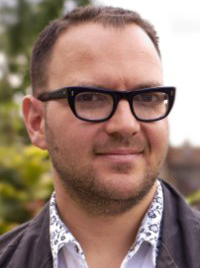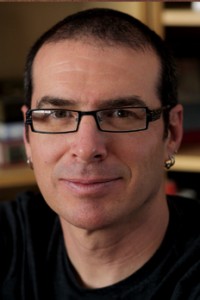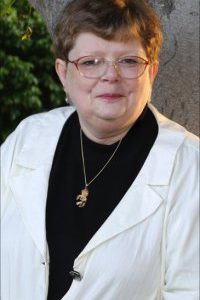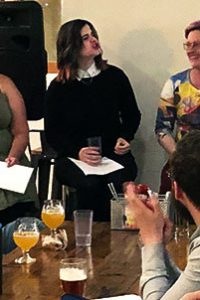Commentary by Cory Doctorow: SF Doesn‘t Predict, It Contests

On June 20, 2023, I will be awarded an Honourary Doctor of Laws from York University’s Faculty of Liberal Arts and Professional Studies, in Toronto, Canada. The text below is the speech I will give.
Goodness me, it is a gigantic honour to be here today, and to be recognized in this way. I’m profoundly grateful to the faculty and administration here at York, and to my friends and family in the audience, especially my parents, who put up with a lot – as you’ll shortly hear.
I want to tell you a funny story about York.
When I was 21, I visited this campus to inquire about enrolling in an interdisciplinary humanities program. I’d had a weird education, taking seven years to graduate from a four-year high school, SEED School, Toronto’s great, original alternative school. I was accustomed to designing my own curriculum and taking charge of my own education, and one of the reasons I’d stuck around at SEED so long is I loved its writing workshop, which was student-led and full of great writers and critiquers.
I started selling short fiction when I was 17, so I came to York and told the guy who ran Humanities I was already selling my short science fiction and I’d like to work on that here.
He called the head of the creative writing program and said something like, “Hey Bob, it’s Tom in Humanities. I’ve got a young man here who is selling science fiction stories and if he enrolls here at York, he’d like to take creative writing courses. What have you got for him?”
Then his face fell. He hung up and said, “He says they only teach literature.”
I enrolled anyway. I didn’t take any creative writing courses. I only lasted a semester, but that’s no indictment of York. I dropped out of three more universities in the next three years and never got a degree. I just wasn’t cut out for it.
That incident stands out, but not because it offended me. Rather, it’s memorable because it was the last time anyone looked down their nose at me because I wrote SF. As I moved into tech, I was surrounded by people who thought that SF writing was literally the coolest thing in the world.
I think they’re right. A couple dozen books later – and after 20 years of working in digital human rights, in intergovernmental bodies like the UN and the EU – I’ve had cause to reflect on SF and its connection to politics, literature, and “the human condition.” The human condition is… not good. We’re in the polycrisis, a widening gyre of climate emergency, inequality, infrastructure neglect, rising authoritarianism and zoonotic plagues.
But that’s not the bad part. Stuff breaks. The Second Law of Thermodynamics is not up for debate. Things fall apart. Assuming nothing will break doesn’t make you an optimist – it makes you a danger to yourself and others. “Nothing will go wrong” is how we get “let’s not put any lifeboats on the Titanic.”
(Let me say, “To hell with optimism and pessimism.” Optimism and pessimism are just fatalism in respectable suits. Optimism is the belief that things will get better, no matter what we do. Pessimism is the belief that things will get worse, no matter what we do. Both deny human agency, that we can intervene to change things.)
The belief that nothing will change – that nothing can change – is the wrecker’s most powerful weapon. After all, if you can convince people that nothing can be done, they won’t try to do anything. Thus: Margaret Thatcher’s dictum, “There is no alternative,” a polite way of saying “Resistance is futile,” or, “Abandon hope all ye who enter here.”
This is inevitabilism, the belief that nothing can change. It’s the opposite of SF. As an SF writer, my job is to imagine alternatives. “There is no alternative” is a demand pretending to be an observation: “Stop trying to think of an alternative.” At its best, SF demands that we look beyond what a gadget does and interrogate who it does it for and who it does it to. That’s an important exercise, maybe the important exercise.
It’s the method by which we seize the means of computation for the betterment of the human race, not the immortal, rapacious colony organisms we call “limited liability companies,” to whom we represent inconvenient gut-flora, and which are rendering the only planet in the universe capable of sustaining human life unfit for human habitation.
The Luddites practiced SF. Perhaps you’ve heard that the Luddites were technophobic thugs who smashed steam-looms because they feared progress. That’s an ahistorical libel. The Luddites weren’t technophobes, they were highly skilled tech workers. Textile guilds required seven years of apprenticeship – Luddites got the equivalent of a master’s from MIT.
Luddites didn’t hate looms. They smashed looms because their bosses wanted to fire skilled workers, ship kidnapped Napoleonic War orphans north from London, and lock them inside factories for a decade of indenture, to be starved, beaten, maimed, and killed. Designing industrial machinery that’s “so easy a child can use it” isn’t necessarily a prelude to child slavery, but it’s not not a prelude to child slavery, either.
The Luddites weren’t mad about what the machines did – they were mad at who the machines did it for and whom they did it to. The child-kidnapping millionaires of the Industrial Revolution said, “There is no alternative,” and the Luddites roared, “The hell you say there isn’t!”
Today’s tech millionaires are no different. Zuckerberg once insisted that there was no way to talk to your friends without being comprehensively spied upon, so every intimate and compromising fact of your life could be gathered, processed, and mobilised against you. He said this was “inevitable,” as though some bearded prophet staggered down off a mountain, bearing two stone tablets, intoning, “Zuck, thou shalt stop rotating thine logfiles, and lo, thou shalt mine them for actionable market intelligence.”
When we demanded the right to talk to our friends without Zuckerberg spying on us, he looked at us like we’d just asked for water that wasn’t wet. Today, Zuck has a new inevitabilist narrative: that we will spend the rest of our days as legless, sexless, heavily surveilled, low-polygon cartoon characters in “the metaverse,” a virtual world he lifted from a 20-year-old dystopian science-fiction novel.
As an SF writer and as an activist, this boils my blood. The point of SF is to hone our Luddite reflex and counter every claim of “there is no alternative” with “The hell you say there isn’t!”
SF doesn’t predict. No one can predict. If we could predict the future, then what we did wouldn’t matter, because the future was coming no matter what. In the Inferno, Dante casts the fortune-tellers into a pit where their heads are twisted around 180 degrees so they forever look behind them as they trudge naked through waist-deep molten feces, goaded on by demons’ whips. Dante let the fortune-tellers off light.
SF does not predict. It does the opposite of predicting. It contests. SF demands we always seek out alternatives, where we find something far better than fatalistic optimism: we find hope. Hope is the belief that if we make a change that betters our circumstances, that from our new vantage point we will espy a previously obscured next step that will bring us closer to a better future. Hope is how we’ll get through the polycrisis.
For decades, we’ve been strapped into the backseat of a bus, speeding towards a cliff. All of us back here in coach have been hollering that we need to hit the brakes or we’re all going over the edge. But the first-class passengers said we’re wrong, there was no cliff – and besides, the bus had to go forward, it’s inevitable, there is no alternative.
Then as the cliff drew closer, the one percent changed their story. Yes, they admitted, there’s a cliff, but the bus has to go faster so we can jump the canyon – or maybe we need to “innovate” a set of wings for the bus. In any event, we can’t stop the bus. There is no alternative.
Now the bus is going so fast, the cliff is so close, braking isn’t an option. We’ve got the yank the wheel and swerve. Up there in first, they’re saying, “Swerve?! Are you crazy? If we swerve, the bus could roll. Someone could break a leg!” It’s too late for braking, so we’ve got to speed up and hope we jump the canyon. There is no alternative.
But there is an alternative. We can rush the driver, grab the wheel, and swerve. If the bus rolls, then we can look after the people who are injured in the roll. But we don’t have to go over the cliff. There is an alternative. There’s always an alternative.
Maybe SF isn’t literature of the sort that the York Creative Writing program valued in the early 1990s. That’s fine. It’s a big world and there’s room for all the literature, all the genres, all the styles. Go on, let your literary freak flag fly. Woo the muse of the odd!
But if SF isn’t that sort of literature, it’s still important literature. Hope begins with the ability to imagine alternatives. And there is always an alternative.
Cory Doctorow is the author of Walkaway, Little Brother, and Information Doesn’t Want to Be Free (among many others); he is the co-owner of Boing Boing, a special consultant to the Electronic Frontier Foundation, a visiting professor of Computer Science at the Open University and an MIT Media Lab Research Affiliate.
All opinions expressed by commentators are solely their own and do not reflect the opinions of Locus.
This article and more like it in the July 2023 issue of Locus.
 While you are here, please take a moment to support Locus with a one-time or recurring donation. We rely on reader donations to keep the magazine and site going, and would like to keep the site paywall free, but WE NEED YOUR FINANCIAL SUPPORT to continue quality coverage of the science fiction and fantasy field.
While you are here, please take a moment to support Locus with a one-time or recurring donation. We rely on reader donations to keep the magazine and site going, and would like to keep the site paywall free, but WE NEED YOUR FINANCIAL SUPPORT to continue quality coverage of the science fiction and fantasy field.
©Locus Magazine. Copyrighted material may not be republished without permission of LSFF.








This is even more inspiring than my friend, a retiring urban studies York prof who attended the speech at York, told me. Bless Cory Doctorow for making me pound the table and go “YES!”. Brilliant!
Thank you, Jim!